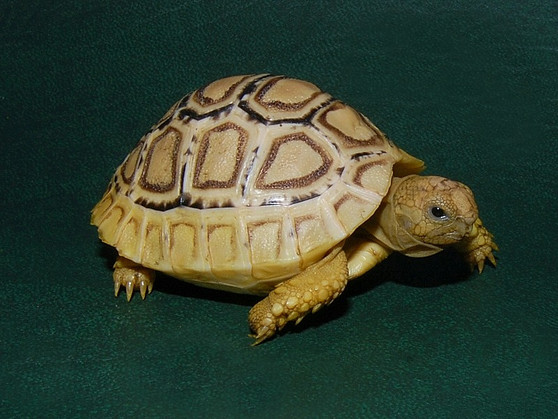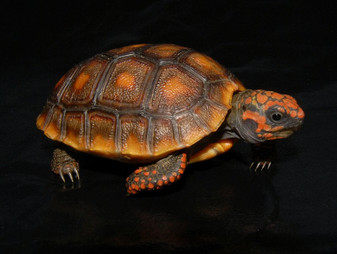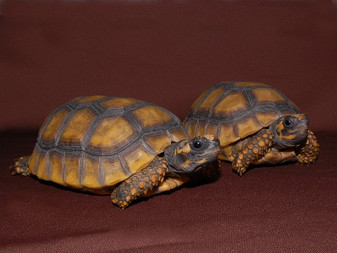Product Description
We held back and bred for lighter and lighter colored Leopard Tortoises over many generations. Here's the result: a small group of Leopards with few or no spots, no mahoganies almost no black - only light tans & browns, yellows and whites. Even the new growth sometimes comes in much lighter than usual.
If you're looking for an exceptionally nice Leopard Tortoise - or even one to contrast a favorite normal Leopard, here's your tortoise. Their diet and other husbandry are exactly the same as for normal colored Leopard Tortoises and follows:
Leopard Tortoises originally came from the savannas of Southern and Eastern Africa. Their importation ended in 2000, so nearly all available animals are captive born here in the US. Breeders have become better at producing them in recent years, and once they are well started, they are great to keep and work with. Inside they do well on mulch or sand, and in tanks or enclosures with temperature ranges from 75f to 90f. A basking spot of 95f is needed. They are fine outdoors in temperatures up to 95f, so long as they have well shaded hiding spots; and are protected from predators. Night time lows should be above 75f for juveniles and above 65f for larger tortoises. Low humidity is best for Leopards as a rule, but younger tortoises do need more than adults. We soak younger Leopards every other day for about 10 minutes in warm, shallow water.
They do very well on Tortoise diet, mixed with veggies, and will endlessly graze on romaine lettuce, or grass. A calcium supplement is important to add to their diet. High White Leopard Tortoises are a desert species and should never have a water bowl. Constant access to greens and short, shallow soakings (3 times a week for hatchlings, twice a week for yearlings and two year olds, and once each week for adults) is their source of hydration.
Leopard Tortoises can grow to 20 inches, and live up to 50 years for their keepers. A few have made it to 26 inches, and 75 years. Dedicated keeping, along with a little luck, undoubtedly makes a difference. Beginning with a thriving tortoise is the key; and we only offer Leopards that are well established.
The USDA requires a veterinary health certificate for Leopard tortoises (and Sulcatta Tortoises) to be shipped from state to state. The Turtle Source is now pleased to provide these health certificates at no additional cost for out of state orders. Obtaining the health certificate may delay shipping by one day.


__16535.1593142421.jpg?c=1)






